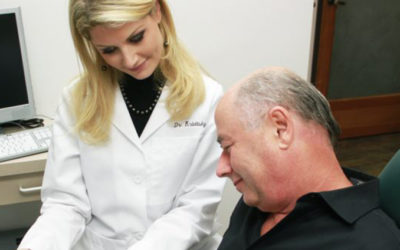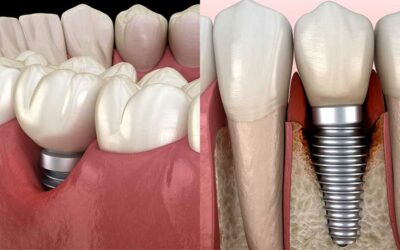Link Found Between Oral Bacteria Causing Periodontal Disease and Inhibited Immune Activity in Human Colorectal Tumors
The findings of this research are surprising because the role of bacteria in helping to fight tumor growth has been found to be beneficial in the past. The presence of Fusobacterium nucleatum bacteria in colon tumors has been documented, and this research is important to help us understand the role that bacteria can play in both the treatment, and progression of cancer cells in the colon, as well as the rest of the body.
Dr. Krivitsky and Dr. Aalam, board-certified periodontists at the Center For Advanced Periodontal Treatment and Implant Therapy in Brentwood, CA, treat patients for periodontal disease, which has been found to have links to other serious health conditions such as heart disease and diabetes as well.
The human immune cells known as natural killer cells help to fight off disease, including tumors. While cancer cells have evolved to avoid the immune response, bacterial extracts have been used successfully to treat cancer in the past. The study found a bacterial protein known as Fap2 binds to an immune cell receptor known as TIGIT, which allows the tumor to evade destruction by the natural killer cells.
The authors of the study at Gilad Bachrach of the Hebrew University-Hadassah School of Dental Medicine believe that blocking this interaction could potentially hold the key to developing more effective treatment options in the future.
“The results of this study have the potential to be groundbreaking if they can lead to new cancer treatment methods. On a more practical level, we always try to stress how proper oral hygiene is critical to preventing gum disease and more serious health problems down the road,” said Dr. Aalam.
If you or someone you know is interested in scheduling an appointment at the CENTER for Advanced Periodontal & Implant Therapy, we encourage you to contact 310-826-8242 today.
You May Also Like...
Senior Periodontal Care and the Challenges Aging Presents
As we journey through the stages of life, there's one aspect that demands consistent consideration — our oral health....
Revolutionizing Gum Disease Treatment: A Non-Surgical Approach to Healing at the Microscopic Level
Gum disease is a widespread oral health issue that affects millions of people around the world. Left untreated can...
How To Prevent An Infection After Getting Dental Implants
One of the leading causes of implant failure and dental implant infections is inadequate home care. Fortunately,...



